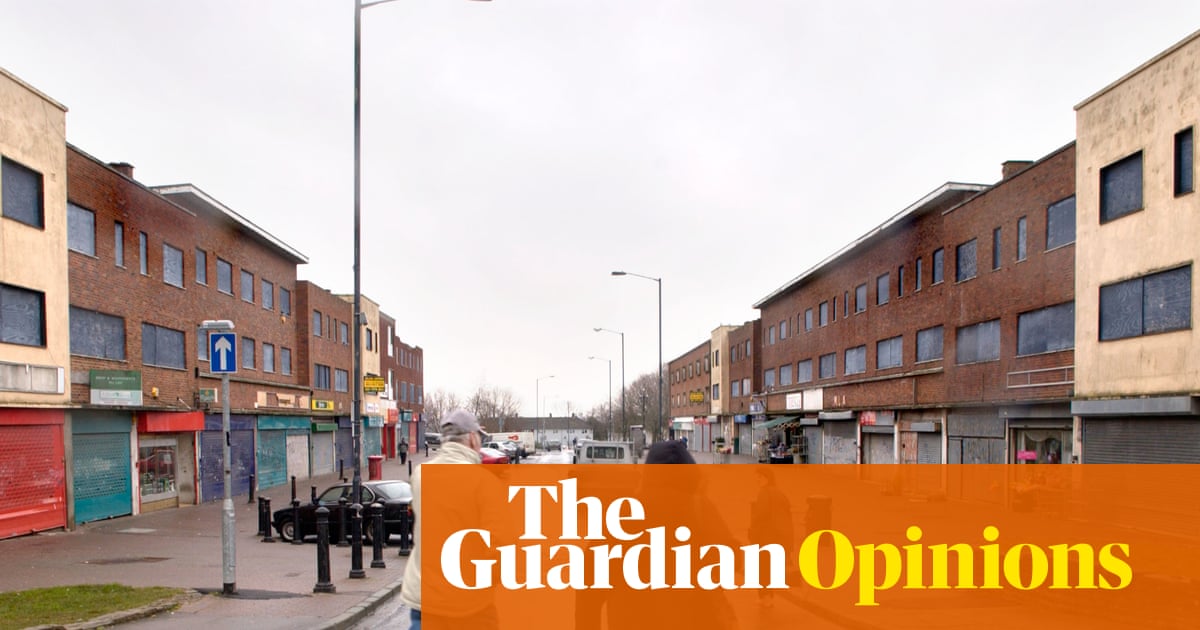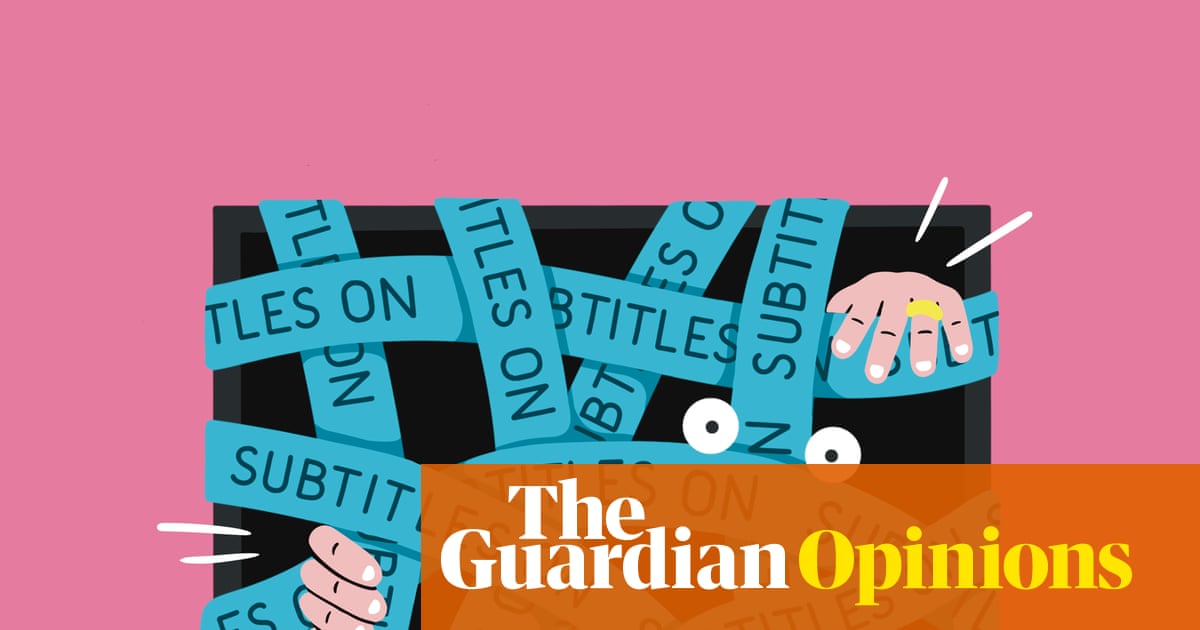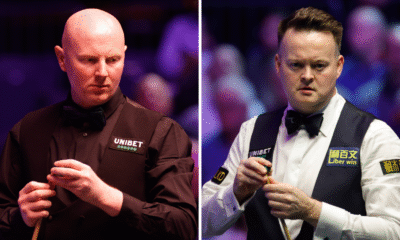Opinion
Jimmy Kimmel is back, but how much longer will late-night comedy last?
Read more on post.
Champions of free speech will have breathed a sigh of relief when The Walt Disney Company returned Jimmy Kimmel Live! to air on its US broadcast network, ABC, on September 23. Disney claims to have made this decision for the “right reasons” – but it was also driven by reports that creatives and, perhaps more importantly, consumers would abandon it in droves if the late-night US TV host was not restored. As always, the economic considerations had as much weight as political ones – if not more.
In the short term, Disney’s change of heart was rewarded. Kimmel’s return created a roughly threefold bump in its ratings – this despite 70 of ABC’s affiliated networks, owned by Sinclair and Nexstar, refusing to broadcast it. While it’s just one show with considerable news currency behind it, this bucks a long-term trend that has seen the decline of late-night political comedy on US broadcast television.
Falling advertising revenue was CBS’s stated reason for not renewing Stephen Colbert’s contract to host the Late Show when it expires in June 2026. But Colbert has been a longstanding critic of Donald Trump, and his show’s cancellation in August 2025 occurred alongside the finalisation of a merger between CBS’s parent company, Paramount, and Skydance Media, which required the approval of the Trump administration’s Federal Communications Commission (FCC).
In an article about topical political comedy in the UK, we argued that the cancellation of BBC shows such as Mock the Week, The Mash Report and Frankie Boyle’s New World Order were driven by the UK’s public broadcaster desire to neutralise claims it was too left-wing or “woke” in the eyes of the right-wing press and the then-Conservative government.
But while this pressure remains real, these shows also fit uncomfortably in a television ecosystem dominated by streaming where the moment of broadcast is of rapidly diminishing importance. Topical comedy’s connection to a particular time and space means it struggles to capture attention from, and remain relevant to, audiences who are used to binge-watching and time-shifting.
So, while the return of Jimmy Kimmel Live! to ABC may be good news for those who fear the US’s descent into authoritarianism, we should consider what other factors may have been at stake in the decision.
For now, Disney cannot afford to offend the creative community that produces content for the more lucrative areas of its business, from Walt Disney Studios and Marvel to Star Wars. Nor can it alienate its consumers who subscribe to Disney+ or visit its theme parks every year. Many members of both groups are not fans of Donald Trump or Maga.

EPA/Sarah Yenesel
But in the medium and long term, Disney might question whether going all-in for late-night comedy hosts is worth it when this could harm other, more valuable parts of its business. For example, Disney is unlikely to sacrifice its ability to get FCC approval for future acquisitions – such as the rights to broadcast live sports on ESPN – for the sake of satirical critique of the Trump administration.
Free speech flourishes online
Tellingly, Kimmel’s opening monologue on his return broke records on YouTube, with more than 15 million views in its first 16 hours. There remains a significant audience for satirical political content, even if not through traditional linear broadcast. Whatever Disney decides in future about Jimmy Kimmel Live! or its ownership of ABC (which is not for sale at present), this trend is likely to continue.
In this age of political polarisation and cultural fragmentation, topical political comedy and satire in the US and beyond are arguably better suited to the online environment. This is – for now – a safe space outside the purview of Trump’s FCC, where commentators and other content creators can say the unsayable largely unencumbered by regulatory oversight on social media and YouTube.
Whatever the right-wing suggests, free speech is alive and well – for good or ill – online. Recommendation algorithms can find content for you whatever your political proclivities.
The Walt Disney Company does not want to be part of a culture war. It has sought to avoid it in these first months of Trump’s second term, from settling his defamation lawsuit against TV anchor George Stephanopoulos and ABC to the tune of US$15 million (£11.23 million) in December 2024, to erasing queer and environmentalist themes from Pixar’s Summer 2025 release Elio.
Despite taking meaningful steps towards diversity and inclusion in recent years, Disney has responded to the US’s rightward turn by concluding that politics is bad for business.
So while it is heartening that, in this instance, Disney has chosen to back free speech and liberal values against right-wing authoritarianism, it would be naive to think this portends a major sea-change in its approach. As former CEO Michael Eisner said in an internal memo in 1981: “We have no obligation to make history. We have no obligation to make art. We have no obligation to make a statement. To make money is our only objective.”
The future of topical political comedy and satire on broadcast television will be decided by this cold, hard reality. Indeed, while this particular battle may have been won by Kimmel and his fans, the larger war may already be over.
Opinion
Labour’s plan to revitalise high streets is good – now it has to make sure people hear about it | Morgan Jones
Read more on post.

The government has launched its Pride in Place strategy, which sees significant investment in disadvantaged communities across the country. It is also, says the newly minted housing, communities and local government secretary, Steve Reed, “putting working families in control of their lives and their neighbourhood”. This follows the English Devolution and Community Empowerment bill, which ploughs a similar furrow, legislating for, among other things, communities’ right to buy and ensuring sports venues are automatically listed as assets of community value.
The strategy is being broadly understood as Labour’s answer to Boris Johnson’s much-touted “levelling up”. The investment, Keir Starmer has said, will “get rid of the boarded-up shops, shuttered youth clubs and crumbling parks that have become symbols of a system that stopped listening”. Neighbourhoods and high streets are the place where the “change” promised by Labour’s winning manifesto must first manifest. It’s not all about the fastest-growing GDP in the G7: the strategy starts by asserting that the government’s “measures of success cannot just be shifts in national statistics but must include change that people see and feel in their local community”.
Labour MPs are praising the direct investment the fund will bring to their communities. The funding allocations have been decided by, among other things, the index of multiple deprivation and the lesser-known community needs index, which measures quality of available services. When communicating the policy to their constituents and local media, they are generally leading with the cash amount being funnelled into their areas, as well they should. Money is what makes things real: policies about duties and responsibilities that cost nothing are cheap in all senses of the word.
People working in what might be understood as the “progressive communitarian” space (including organisations such as Power to Change, the Independent Commission on Neighbourhoods, Locality and the Co-operative party) want to critique that narrative, however. They argue that Labour’s plans are different from the levelling-up funds because of the structures by which the money will be spent. It provides money and power.
“Nothing destroys political trust like money that comes and goes,” says Caitlin Prowle, head of politics at the Co-operative party, drawing a direct contrast with Johnson’s plan: “This isn’t just about investment in communities, it’s about a genuine shift in power and ownership. This money comes with new powers to shape and own community assets, so that even when funding fades, the community owns those places and can determine their future.”
As with the provisions of the English Devolution and Community Empowerment bill (but more so), it is being framed by Labour as a response to decreasing trust in politics – and, of course, to Reform UK. Farage’s party placed second to Labour in a great many of the areas that will now receive funding. “This is our alternative to the forces trying to pull us apart,” says Reed in his introduction to the strategy. There are no prizes for guessing who he means.
The theory of change here is based on ideas about political trust, understanding Reform as a manifestation of anti-politics. First, it argues that people want to see real delivery in their local areas – and that at this level it is possible to give it and make people believe politics is responsive to their lives. Second, it seeks to build up trust and positive feeling, from where it is strong at a local level, so that its benefits might apply to national politics.
Steve Reed is a Labour and Co-operative MP, and before entering parliament was leader of Lambeth council, in which time he set up the Co-operative Councils Innovation Network. In 2011, in his contribution to the Purple Book (an attempt at intellectually revitalising the Labour right after the 2010 defeat, featuring contributions from no fewer than five current cabinet ministers), he wrote about “handing more power to communities and the people who use public services”, something which requires turning the “traditional model upside down”.
Reed is a long-term believer in the politics he is now attempting to put into practice; this background probably goes some of the way to explaining why this programme is the most fleshed-out iteration of Labour’s localism-against-Reform playbook thus far. Whether it is successful, however, depends on how well Labour can communicate the agenda and authentically own the changes that will be brought about by this shift of money and power. Reform is, many people acknowledge, significantly ahead of Labour when it comes to community organising (something no doubt due in part to the difficult legacy of the Corbyn-era Labour community organising unit, shuttered early in the Starmer years, which became for many on the then ascendent right of the party a byword for a kind of lefty excess that was both out of touch and insufficiently electorally minded). But the potential rewards are huge: a rebuke to the argument that politicians are removed from people’s real lives, and an injection of cash and autonomy to places that sorely need both.
-
Morgan Jones is the co-editor of Renewal: A Journal of Social Democracy
Opinion
Most of gen Z watch TV with the subtitles on – and I understand why | Isabel Brooks
Read more on post.

I used to think there were two types of people: the ones who only use subtitles when necessary, and the unappreciative philistines who use them for no good reason. I was willing to die on this hill, arguing that they distracted from the purity of the audiovisual experience: the cinematographer’s attention to detail, the glimpse of a tear in an actor’s eye, the punchline of an expertly timed joke, and so on.
But I have been forced to recognise just how alone I am on this hill: in 2021, a survey found that 80% of 18-25-year-olds used subtitles all or some of the time, while a new survey run by streaming service U found that 87% of young Britons are using subtitles more than they used to. There is no longer a debate about subtitles: among my peers, “two types” of people have given way to “mostly one type”. (Meanwhile, the 2021 survey found that less than a quarter of boomers used subtitles, despite the latter generation experiencing more hearing difficulties overall.)
Why is this practice so common among people my age? If you aren’t hearing-impaired and are fluent in the language of the dialogue, what is it about subtitles that makes them more appealing?
An easy assumption is that this is the result of a short attention span, passivity and a lazy nature, a failure of generation Zombie. But having experienced watching TV with and without subtitles, I’d say the former doesn’t beget lazy viewing so much as a quicker information download. The new status quo of “subtitles on” among the young reflects both a values shift and cultural conditioning as a result of big tech’s ever-encroaching impact on our entertainment experience.
For example, the small screen in our living room has to share the limelight with the micro screen in our lap. The U survey revealed that 80% of gen Z and millennials “double-screen” when they watch. With subtitles on, I find myself being able to quickly gather what one character has said, look down at my phone, react to a message, then look up before that character has even finished their line. The viewing experience thus becomes multifaceted and efficient. The subtitles allow us to go on our phone but still absorb the content and gist of the TV show. Of course, that means they also function as mini-spoilers: when watching a comedy sketch recently, I found myself half-heartedly chuckling at a joke before it had left David Mitchell’s mouth – because I had already read it on the screen.
I don’t need to use my little grey cells when watching most TV shows, but there are few, like Succession, where double-screening is a sad exercise. Even if I manage to successfully absorb each line in the script through reading, I’d be neglecting the exceptional acting. The same thing cannot be said for Love Island (although arguably the acting is of a high standard there, too).
And social media itself has encouraged the use of subtitles across the board. It is now a given that most creators add text captions to their videos – without the option to turn them off. This cultural shift may explain the generational gap between boomers and younger viewers, the latter only appeased by rapid-fire content and videos with faster cuts, absorbing lightweight content at a higher speed, which text captions allow us to do.
This isn’t simply a trend but a feature anchored in the algorithm itself. Text captions, rather than dialogue, encourage the video to crop up in the TikTok search engine, increasing reach and visibility as well as viewer retention and viewing time. It began as an accessibility improvement, but the rapidity with which it has caught on suggests it’s business-oriented and crucial to getting that sweet algorithm boost. The fact that 85% of social media visual content is now watched on mute (while commuting, cooking, on the treadmill at the gym or in houseshares), coupled with the ease with which AI can generate subtitles without the need for human transcription, means we’re living in a subtitled world – one that is often poorly translated, low-quality and error-ridden.
Seen this way, subtitles have been normalised as a result of our technology-infused lifestyle, rather than being something we have actively sought out or freely adopted. My flatmate, a keen TikToker, said she used to find subtitles distracting and annoying, then gradually started using them while watching TV. “I’ve felt very passive in it,” she said. “I don’t think I look at them most of the time.” Then why do you have the subtitles on, I asked. “I don’t know,” she said with a shrug.
Amazingly, subtitles have not been linked to improvements in young people learning to read, although other studies have shown that they can improve comprehension of what happened in a given programme. Subtitles arguably keep us following more effectively than non-subtitles. Our TV habits are now influenced by a need for efficiency ported over from our social-media habits, which mean we can quickly glean the necessary content and then move on. In a 2023 survey, 40% of Americans cited “enhanced comprehension” as the main reason they use subtitles.
I have to ask: are people now watching shows just to find out what happens, and to prove they’ve seen it? Since when did we finish work, sit down on the sofa, cuddle up and think “thank god, I can’t wait for a bit of comprehension tonight”? TV is supposed to be fun. Shouldn’t we be focused on enjoying it?
-
Isabel Brooks is a freelance writer
-
Politics5 days ago
European Parliament snubs Orbán with vote to shield Italian MEP from Hungarian arrest
-
Culture2 months ago
Fatal, flashy and indecent – the movies of Adrian Lyne revisited
-
Culture3 weeks ago
Life, loss, fame & family – the IFI Documentary Festival in focus
-
Environment1 week ago
Key oceans treaty crosses threshold to come into force
-
Health5 days ago
EU renews support for WHO’s Universal Health Coverage Partnership
-
Culture1 week ago
Farewell, Sundance – how Robert Redford changed cinema forever
-
Culture5 days ago
Twilight at 20: the many afterlives of Stephenie Meyer’s vampires
-
Culture4 weeks ago
What is KPop Demon Hunters, and why is everyone talking about it?













































